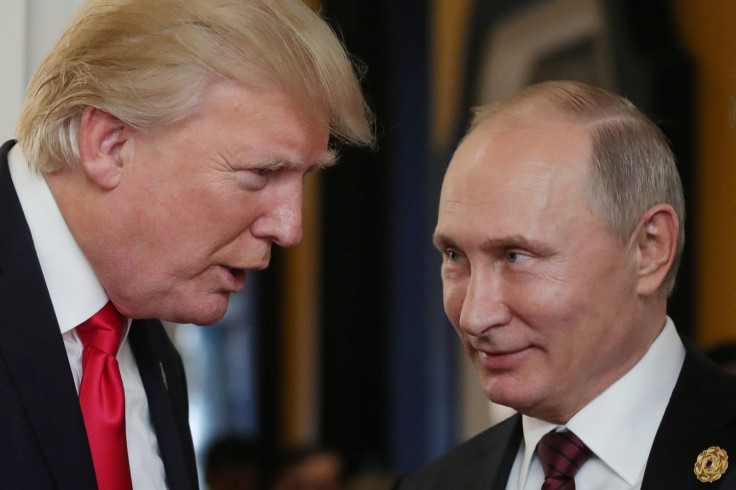Donald Trump refuses to implement new sanctions on Putin's Russia
Russia has accused the US of interfering in its March presidential elections.

Donald Trump has refused to implement fresh sanctions against Russia despite fresh legislation passed by Congress in 2017.
New sanctions against Russia were backed by officials in Washington last year, as a diplomatic tit-for-tat in alleged interference in the 2016 presidential elections as well as Russia's involvement in the annexation of Crimea.
The White House had a deadline of midnight on Monday (29 January) to detail the companies and foreign countries that are known to be doing business with blacklisted Russian defence and intelligence agencies.
But instead of announcing new sanctions, the state department opted to simply release the list of companies instead.
An official at the state department said they had placed foreign governments "on notice" and that those seen to be engaging in "significant transactions" with the companies and businesses listed, would face sanctions.
"Sanctions on specific entities or individuals will not need to be imposed because the legislation is, in fact, serving as a deterrent," the official said.
The list includes Russian politicians, ministers as well as officials in various government branches across Moscow.
But Kremlin spokesman, Dmitry Peskov hit back, accusing the US of using any sanctions as an "obvious attempt" to interfere in Russia's presidential elections in March.
Peskov said: "We do think that this is a direct and obvious attempt to time some sort of action to coincide with our elections in order to influence them.
"We disagree with this, and we are sure this will have no influence."
It comes after the CIA director, Mike Pompeo warned that Russia would try to interfere in the US midterm elections in November this year.
Pompeo stated: "I have every expectation that they will continue to try and do that, but I'm confident that America will be able to have a free and fair election [and] that we will push back in a way that is sufficiently robust that the impact they have on our election won't be great."






















